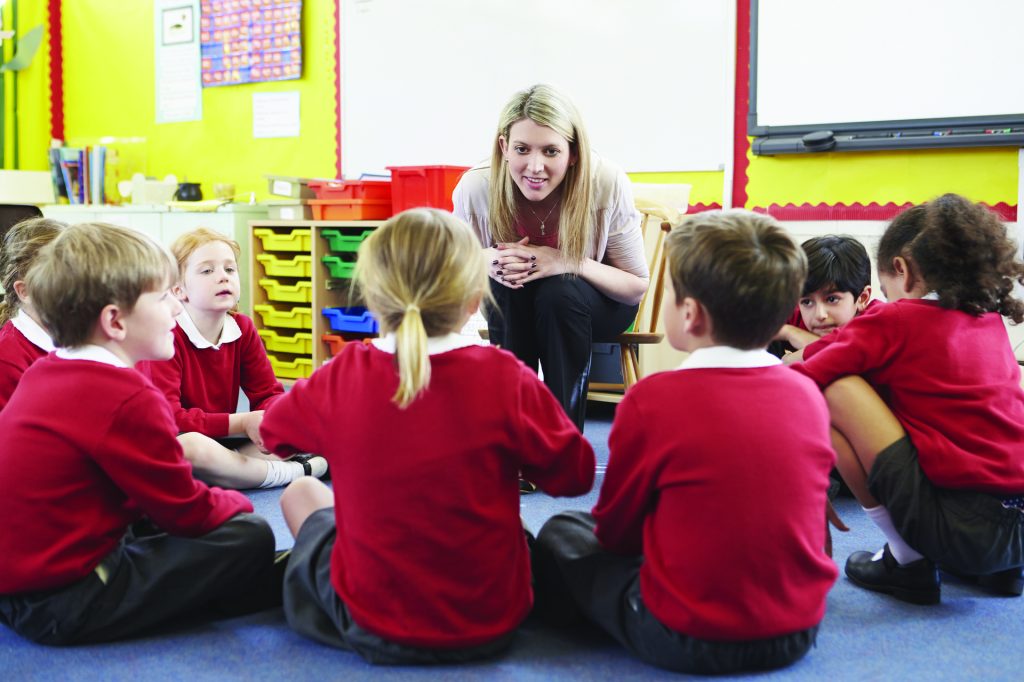When will the Schools White Paper, SEND Green Paper and Independent Reviews of Children’s Social Care be published?
It has been a very challenging and difficult two years and schools have continuously provided education for their children and young people throughout it all. The impact that the Global Pandemic has had on all of us has been devastating, whether through loss of loved ones, loneliness, inability to travel to see friends and family or just not being able to live a “normal” life.
For many children and young people, the impact will resonate for many years to come. We are currently experiencing what I am calling the COVID Cohort – not just those children and young people who have been impacted by the disruption of education during the last two years but also that group of children who are not even in our schools at the moment – those two and three year old’s who have been impacted by lack of wider family support, limited access to pre-school provision and very little contact with other children or adults. This may have had a very great impact on the development of their social skills, emotional skills and language skills which will have an impact on their development.
The Children’s Commissioner, Rachel De Souza, in her report Where are England’s Children? Interim findings from the Children’s Commissioner’s Attendance Audit, has highlighted the significant number of children and young people who have been “missing” from education since September 2021.
- Almost 1.8 million children missed at least 10% of school in the autumn term in England
- The number of children missing at least half of school is also greater than previously thought, at 122,000
Schools need to be doing everything they can to get all their pupils back into school – fining parents is not going to be the answer! Having a deeper understanding of what the barriers are for these pupils and then working to remove or reduce those is the way forward. These pupils, like many who have been attending school throughout, will have gaps in their learning and will need additional support going forward.
What we need to be very clear about is that they may not be SEND, with additional support they will make progress and be able to achieve alongside their peers. Hopefully schools will not rush to add these pupils to their SEND Register before implementing adequate support to aid their educational recovery.
We are currently awaiting three very important documents that will shape the future of education, SEND and Social Care going forward and will hopefully reflect where we are currently and where we want to be in the future.
- Schools White Paper
- SEND Green Paper
- Independent Reviews of Children’s Social Care
The first two documents are expected by the end of March 2022 with the Review of Social Care following later in the year. The hope is that they will all be clearly aligned to ensure the best possible outcomes for the most vulnerable children and young people in society.
What do we know about the SEND Green Paper?
At the moment, not very much. It was first introduced by Gavin Williamson, the then Secretary of State for Education in September 2019 – Brexit, a global pandemic and a change of the ministerial team at the DfE have delayed this by two and a half years but we are being told that it will be a Green Paper, there will be at least a twelve week consultation period and it will be out by the end of March 2022.
The DfE are being very “cagey” about its contents but the following appear to be recurring themes, reiterated by Will Quince MP, Minister for Children and Families in his Special Needs Jungle Webinar on March 7th.
- Greater clarity of roles and responsibilities within the SEND system
- Improve mainstream schools to be more inclusive and to fulfil their responsibilities in a more equal way across the country – this will include additional training requirements
- Ensuring that the system is more sustainable financially in the long run
- Reduce local variation and mitigate the “post code lottery”
- Improve benchmarking in relation to schools around them, schools in their local area, or nationally
- Align funding and accountability better
- Reduction of the number of costly and stressful tribunals
- Outcomes focused on focus on securing employment and training after leaving school

Moving forward
Anyone who has heard me speak will have heard me say that we are currently working in a 20th Century education system with a 20th Century workforce working with 21st Century children and young people. This is even more pertinent today.
I believe mainstream schools are going to be at the heart of the SEND Green Paper, with the expectation that they need to be more inclusive and have the staff and resources to meet the needs of all pupils, including those with complex needs.

This will require schools to consider if their current workforce is adequately trained and supported but in the long-term do they have the appropriate workforce to meet the needs of their pupils.
If there are significant pupils starting school with speech and language difficulties then should the school not be seeking to have a Speech and Language Therapist as part of their workforce and/or have re-trained Teaching Assistants to be Communication Ambassadors.
If there are significant pupils with social and emotional needs then should the school not be employing or re-training staff who have the skills to support these pupils. An example would be to have Emotional Literacy Support Assistants (ELSAs).
If there are significant pupils with mental health needs then schools should be seeking to have Counselors. Mentors and Mental Health Practitioners.
There is a whole group of other professionals that a school could invest in to support the needs of their pupils. Occupational Therapists, Art Therapist, Music Therapists, Home-School Key Workers
In my opinion, schools are no longer just educational establishments, we are also having to support health and social care needs.
For this to be successful there needs to be investment in our school workforce and this will mean additional funding is required.
If the Government’s plan is that mainstream schools are better resourced to meet the needs of more complex pupils then there needs to be investment in the school workforce.
I urge you all to respond to the Green Paper consultation when it is launched – this is a chance to really try and get an educational system that meets the needs of all pupils.
If you need some help, why not contact one of our speech and language therapists, whose details you can find here. Or you can use some of our online resources which you can find here.










